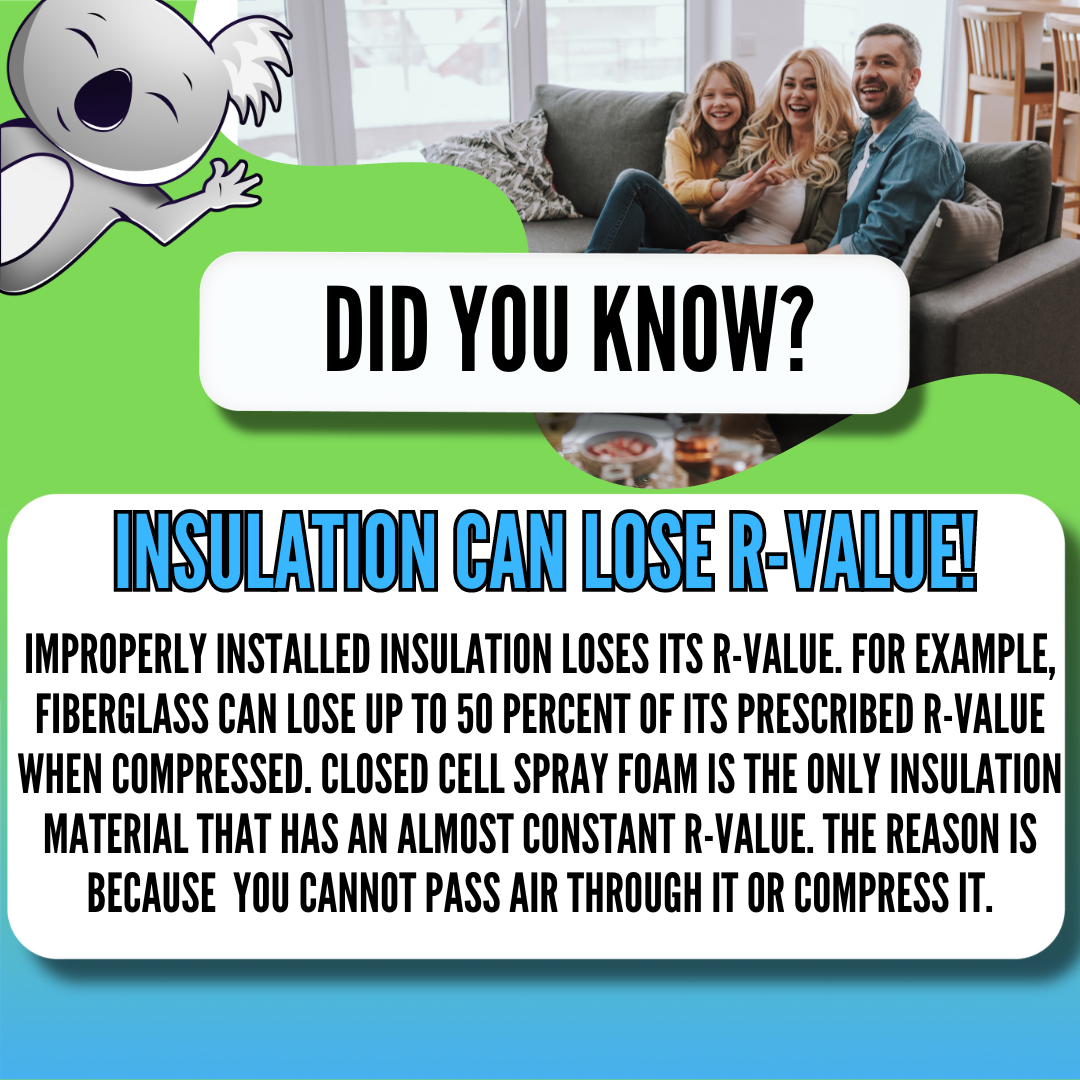
Unlocking the Secrets of Insulation: Understanding the Dynamic R-Value
Hello Canton homeowners!
Zach here, the proud owner of Koala Insulation, and today I want to shed some light on a topic that's crucial for your home's energy efficiency: insulation and its mysterious R-value. If you've ever wondered why your energy bills fluctuate or why your home doesn't stay as cozy as you'd like, it might be time to dig into the world of insulation.
The R-Value: A Quick Recap
First things first, let's refresh our memory on what R-value actually means. In simple terms, the R-value measures how well a material resists the flow of heat. The higher the R-value, the better the insulation. However, it's important to note that not all insulation materials maintain a consistent R-value over time.
Why Does R-Value Change?
Several factors can impact the R-value of insulation, and understanding these can help you make informed decisions about your home's energy efficiency. Here are some key reasons:
-
Moisture Infiltration: Many insulation materials, such as fiberglass and cellulose, can lose their effectiveness when exposed to moisture. As they absorb water, their R-value decreases, leading to a less energy-efficient home.
-
Compression: Over time, some insulation materials may compress or settle, reducing the thickness and, consequently, the R-value. This is particularly common in loose-fill or batt insulation.
-
Aging: Like all things, insulation materials can age. As they do, their ability to resist heat may diminish, resulting in a lower R-value.
-
Material Degradation: Certain insulation materials break down over time due to exposure to UV rays or other environmental factors. This degradation can significantly impact the R-value.
The Constant R-Value Solution: Closed-Cell Foam
Now, let's talk about the hero of the insulation world – closed-cell foam. Unlike other insulation materials, closed-cell foam maintains a constant R-value over the long haul. This unique characteristic makes it a stellar investment for homeowners looking to maximize energy efficiency and comfort.
Closed-cell foam insulation doesn't absorb moisture, making it resistant to mold and mildew. It also maintains its structural integrity, preventing compression or settling. Whether it's rain or shine, hot or cold, closed-cell foam insulation stands strong, consistently providing the thermal resistance your home needs.
Investing in Your Home's Future
Choosing the right insulation is not just about keeping your home comfortable; it's also a smart investment in long-term energy savings. While other insulation materials may offer initial high R-values, they might not hold up over time, leading to diminished performance.
As the owner of Koala Insulation in Canton, I'm committed to delivering top-notch insulation solutions that stand the test of time. Closed-cell foam insulation is not just a product; it's an investment in the future comfort and efficiency of your home.
If you're ready to take the next step toward a consistently comfortable and energy-efficient home, give us a call at Koala Insulation. Let's make your home the epitome of energy efficiency in Canton!
Stay snug, Zach Owner, Koala Insulation of Canton
Ready to book your free insulation evaluation?
We have 3 convienant ways for you to get in touch
We Provide Insulation Services to the Following Canton Areas
ALLIANCE, HARTVILLE, LOUISVILLE, CANTON, NORTH CANTON, EAST CANTON
Counties Served
STARK
Zip Code
44601, 44632, 44641, 44702, 44703, 44704, 44705, 44707, 44709, 44711, 44714, 44718, 44720, 44721, 44730
